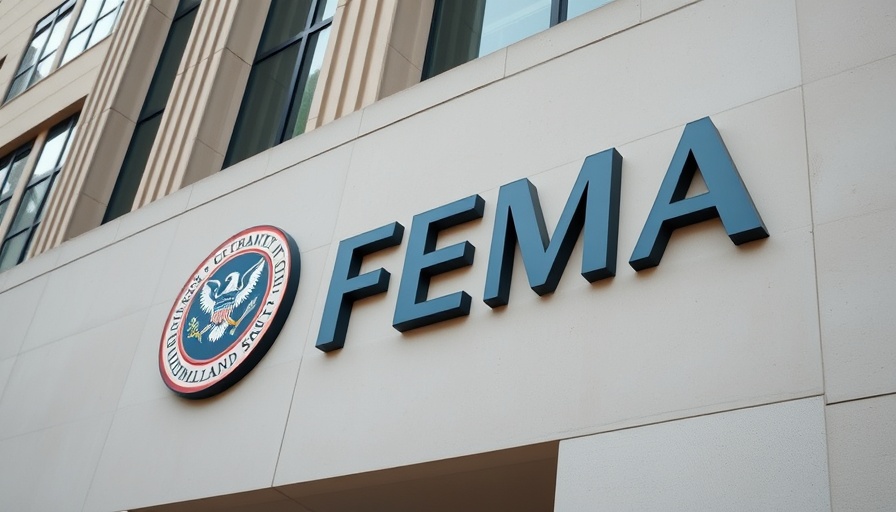
FEMA's Alarming Readiness Gap Before Hurricane Season
As the skies darken and hurricane season looms just weeks away, unsettling news from FEMA officials is sending shockwaves through disaster preparedness circles. A report has emerged, ringing alarm bells that the agency is inadequately prepared to handle potential hurricanes, which begs the question: how can we fortify our readiness for nature's wrath?
Understanding the Threat of Hurricanes
Hurricanes are not just weather phenomena; they are catastrophic events capable of causing immense damage across communities. Each year, the National Oceanic and Atmospheric Administration (NOAA) predicts the potential for these storms, yet the frequency and intensity seem to escalate, making adequate preparation critical for safeguarding lives and property.
This Year's Concerns: What Is Different?
The 2023 hurricane season has been particularly alarming, according to internal reports from FEMA, which indicate significant gaps in the agency's readiness. Reports highlight critical areas such as supply chain management, staffing shortages, and inadequate funding for resources necessary to respond to mega-storms. This uncertainty raises alarm about the reliability of local assistance during urgent times, as community agencies often depend on FEMA's swift action.
The Broader Implication: Vulnerability of Communities
The implications of FEMA's unpreparedness extend beyond federal policy; they ripple down to individual communities. Areas frequently affected by hurricanes, like Florida and Louisiana, could witness disastrous consequences if local agencies are not equipped with the necessary tools and manpower. The emotional and financial toll on residents can be staggering, not just during storms but also in the long recovery following these events.
FEMA's Role: A Historic Perspective
Established after the catastrophic events of the 1960s, FEMA was created to manage emergencies and assist communities in times of need. Its effectiveness, however, has been tested repeatedly. Historical events, from Hurricane Katrina to Hurricane Harvey, spotlight that inadequacies in federal response can have dire consequences. This year's announcement from FEMA reflects not just changing climate realities but potentially a disconnect between policy and execution.
Calls for Reform: What Needs to Change?
In light of these revelations, experts in disaster management are calling for comprehensive reform within FEMA. Recommendations include improving supply chain logistics, enhancing training for local responders, and ensuring adequate funding is consistently allocated for disaster preparedness. Furthermore, fostering collaborative relationships with community organizations can bolster response efforts and amplify the effectiveness of immediate relief efforts during crises.
Moving Forward: Empowering Yourself and Your Community
As uncertainty looms, individuals must take proactive steps to prepare themselves and their neighborhoods for hurricane threats. From compiling emergency kits to developing family communication plans, personal preparedness can mitigate risks. Encourage your local community centers to host disaster preparedness workshops to ensure everyone is ready when the storm inevitably strikes.
The importance of awareness and preparedness cannot be overstated, especially in light of FEMA's current readiness challenges. Empowerment starts at the grassroots level—every informed citizen can contribute to a more resilient community.
The alarm has been sounded, and it is now up to us—to take action, stay informed, and prepare ourselves and our communities for whatever this hurricane season may bring. It’s not just the responsibility of federal agencies; it’s a collective duty to safeguard our homes and lives.
In summary, as we face the impending hurricane season, let us not become complacent. Instead, we must engage in meaningful dialogue, advocate for reform, and create actionable plans to defend ourselves against the storms to come.
 Add Element
Add Element  Add Row
Add Row 



 Add Row
Add Row  Add
Add 


Write A Comment